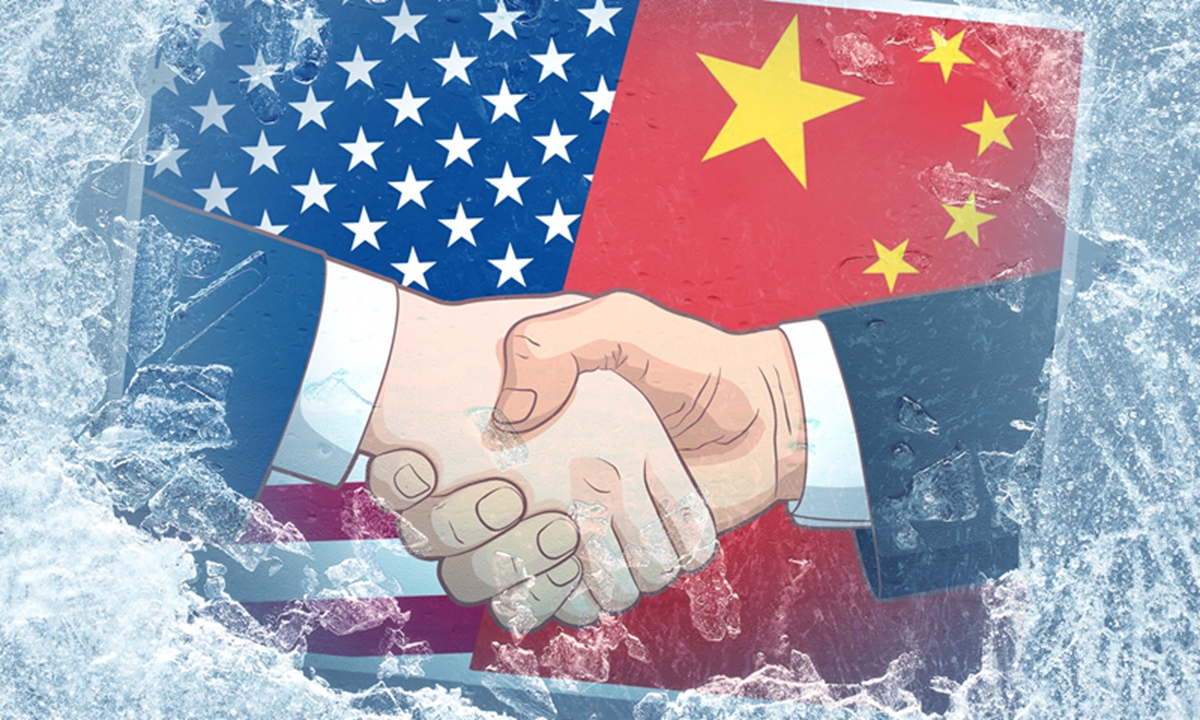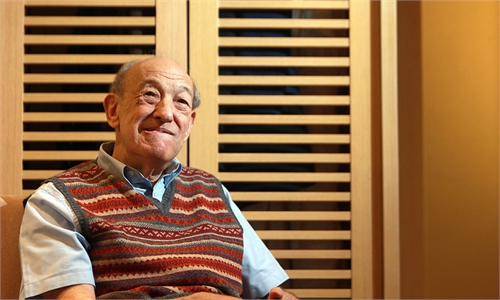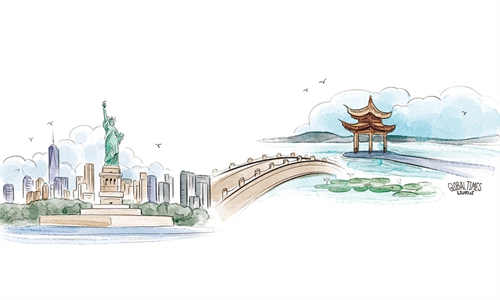
Photo: GT
I have known Prof. Ezra Vogel for many years. There were multiple occasions that we had meetings and exchanged views, three of which have left a deep impression on me.In 1996, Prof. Vogel came to China with a book manuscript titled Living with China: U.S./China Relations in the Twenty-first Century. The book was written by a group of renowned China scholars in the US and compiled by him. He led a delegation to China to listen to suggestions from Chinese scholars about the book. The delegation also visited my institute. The authors of the book introduced the main contents, and we had a lively discussion about it.
Then in 2013, the Chinese edition of Prof. Vogel's book entitled Deng Xiaoping and the Transformation of China was published. One day, Tsinghua University invited a group of Chinese scholars to discuss the book. I was one of them. We all gave a high evaluation of the book.
When writing the book, Prof. Vogel researched enormous amounts of materials and interviewed many people around the world, including former Japanese prime minister Yasuhiro Nakasone and founding prime minister of Singapore Lee Kuan Yew, who had contacts with Deng. It is extremely difficult for any Chinese scholar to pull this off, but Prof. Vogel made it.
In 2015, my colleagues and I visited Harvard University. We held a symposium with some scholars from Harvard and the theme was, "The Eastern Battlefield during World War II." Vogel attended this symposium. One day prior to this, he invited us to his home. I brought a copy of my book A Brief History of China-U.S. Relations to seek his advice. At that time, he was writing a biography of former Chinese leader Hu Yaobang. He said a few times that his philosophy was "live to work." It is such a pity that he passed away before he could finish that book.
Prof. Vogel did not go to extremes, and he opposed extreme opinions. As a moderate, he believed that China and the US share a lot of common interests and have plenty of room for cooperation. He also contended that China did not pose a big challenge or threat to the US - and that the US does not need to fear China's rise. He also reminded China to deal with world affairs in a cautious and prudent manner during its rise.
As a mature and old-generation China hand, Prof. Vogel was one of the US scholars who constantly spoke about China-US relations. Even during the era of US President Donald Trump, whose administration messed up China-US relations, he did not hide his criticism against their intents and failed strategies. He opposed various restrictions on China-US people-to-people exchanges set by this administration.
The more restrictions on such exchanges, the less the two countries understand each other. But the wrong-headed China policies adopted by this administration have led to strained ties between the Chinese and American people - it has strained ties between China and the US as a whole.
The passing away of Prof. Vogel will bring some shockwaves to the China scholars in the US. At present, we often hear tough or even hysterical voices from certain US scholars with regard to China affairs. We should not easily label those who say things certain people in China might dislike as "hawks." This will squeeze the room for exchanges between Chinese and American scholars - or even room for China-US cooperation.
There are also other moderate scholars, including Michael Swine and Charles Freeman, who have a fair and objective view of China-US relations, and they also express their views in public. Maybe under the current political climate between China and the US, their voices are not loud enough or mainstream enough. But at least their voices still exist.
The detrimental impact to China-US relations by this US administration is so huge that partial amendments are not enough at this minute. The China-US relationship needs a new framework, during which people-to-people exchanges are an essential part. This is the challenge that the new Biden administration must face up to. But I believe that Prof. Ezra Vogel's wisdom will continue to inspire us.
The author is a research fellow at the Institute of American Studies, Chinese Academy of Social Sciences. opinion@globaltimes.com.cn


